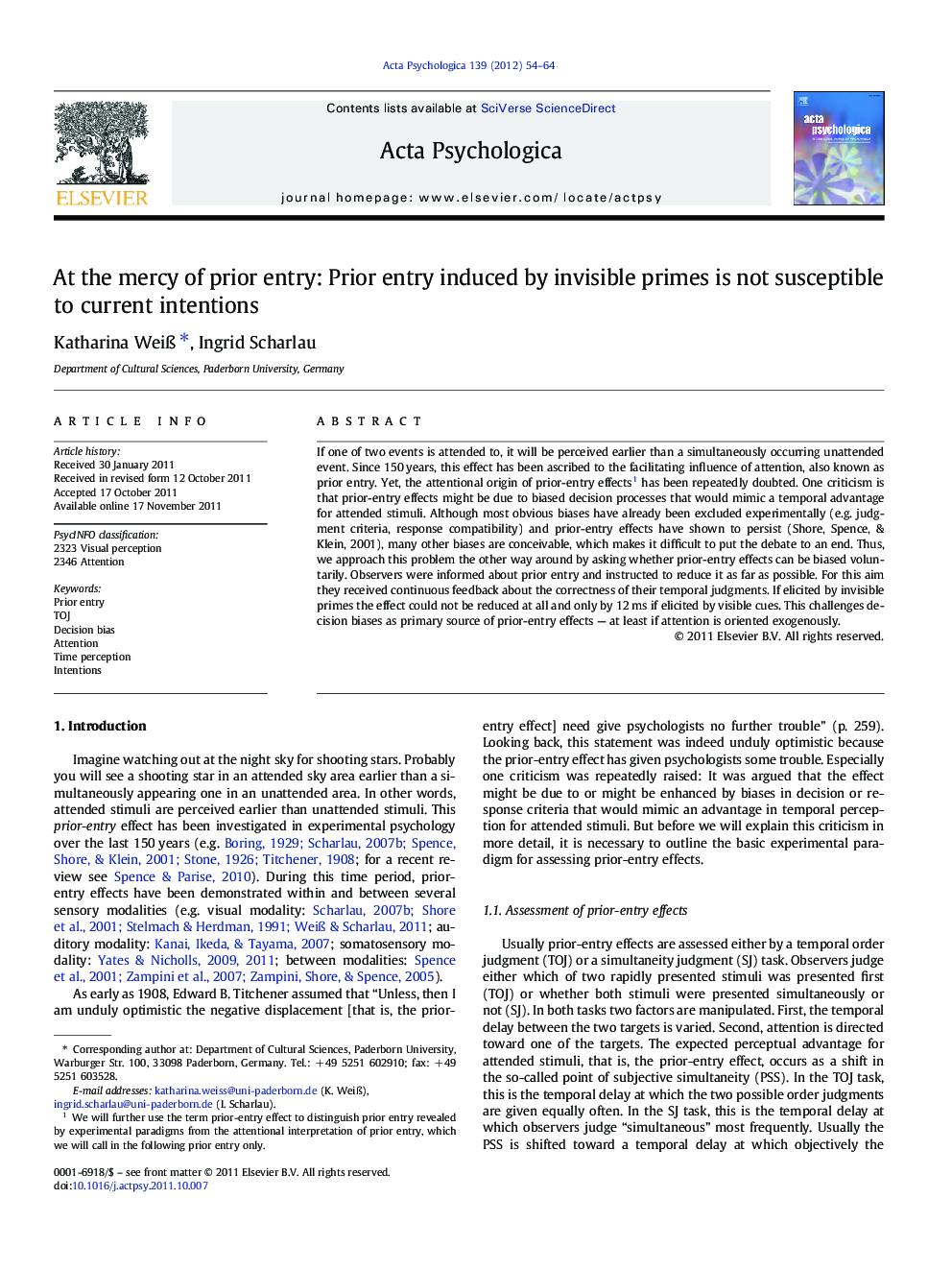| Article ID | Journal | Published Year | Pages | File Type |
|---|---|---|---|---|
| 920093 | Acta Psychologica | 2012 | 11 Pages |
If one of two events is attended to, it will be perceived earlier than a simultaneously occurring unattended event. Since 150 years, this effect has been ascribed to the facilitating influence of attention, also known as prior entry. Yet, the attentional origin of prior-entry effects1 has been repeatedly doubted. One criticism is that prior-entry effects might be due to biased decision processes that would mimic a temporal advantage for attended stimuli. Although most obvious biases have already been excluded experimentally (e.g. judgment criteria, response compatibility) and prior-entry effects have shown to persist (Shore, Spence, & Klein, 2001), many other biases are conceivable, which makes it difficult to put the debate to an end. Thus, we approach this problem the other way around by asking whether prior-entry effects can be biased voluntarily. Observers were informed about prior entry and instructed to reduce it as far as possible. For this aim they received continuous feedback about the correctness of their temporal judgments. If elicited by invisible primes the effect could not be reduced at all and only by 12 ms if elicited by visible cues. This challenges decision biases as primary source of prior-entry effects — at least if attention is oriented exogenously.
► Prior entry denotes earlier perception of attended stimuli. ► But prior entry might be due to biased decision processes instead of attention. ► We examined whether prior entry could be biased (reduced) voluntarily. ► It could not be reduced with invisible primes but by a small amount with visible cues. ► This argues against a substantial contribution of decision biases to prior entry.
